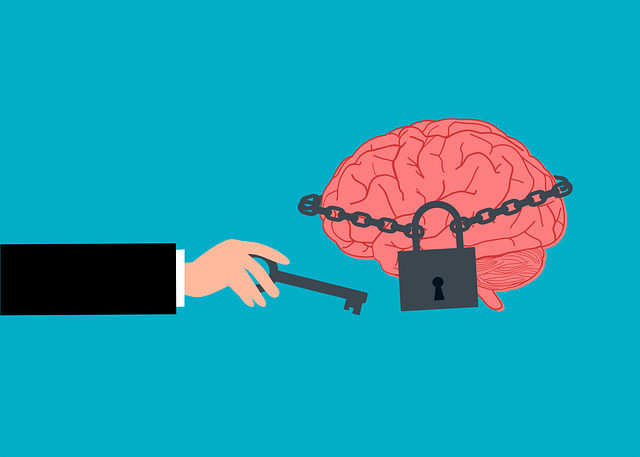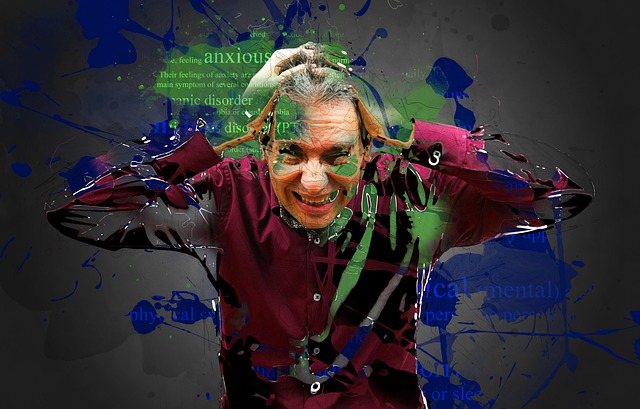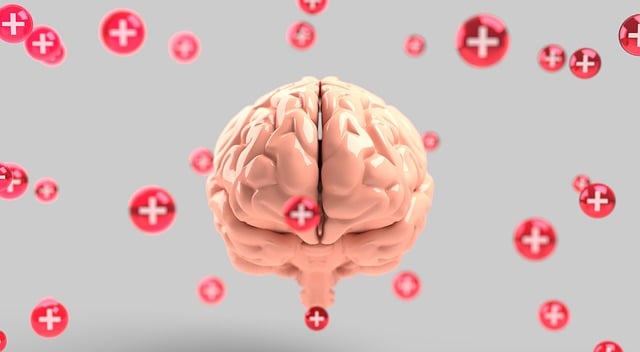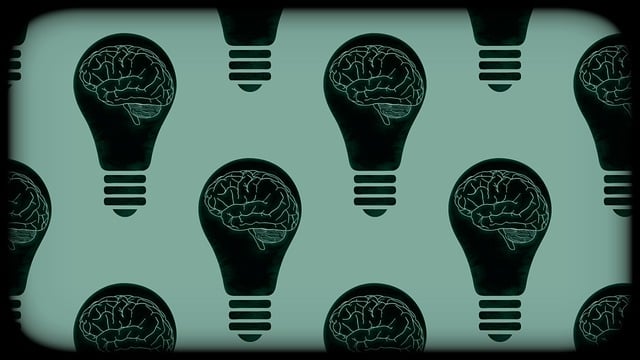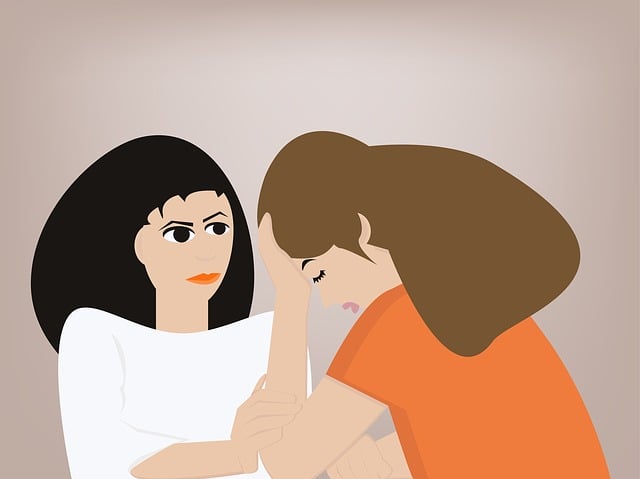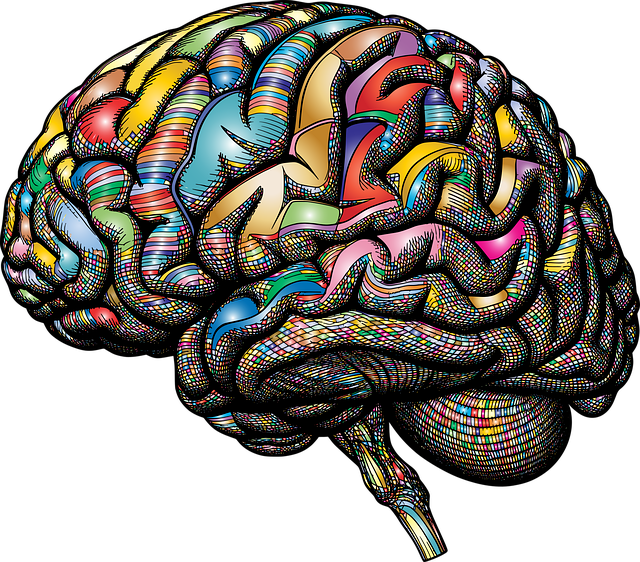Anxiety disorders, prevalent globally, impact daily life through symptoms like excessive worry, rapid heartbeat, and insomnia, caused by genetic factors, environmental stressors, and neurochemical imbalances. Effective management includes cognitive-behavioral therapy (CBT), mindfulness, meditation, physical activity, balanced diet, support groups, and alternative therapies like mental wellness coaching. For adults struggling with alcohol abuse, CBT integrates mental wellness podcast techniques to enhance recovery, while mindfulness practices cultivate present-moment awareness and emotional intelligence, breaking the cycle of worry and fear that drives addiction. Support groups provide a safe space for understanding and empowerment, with personalized coaching programs enhancing traditional treatments for effective management of dual issues.
Anxiety disorders are prevalent and can significantly impact daily life. This article explores effective management techniques to combat anxiety and enhance well-being. We delve into understanding the symptoms and causes of anxiety disorders, highlighting cognitive behavioral therapy (CBT) as a powerful tool. Additionally, mindfulness practices, lifestyle adjustments through exercise, diet, and sleep, and support groups for adult alcohol abuse and anxiety are discussed as complementary therapies.
- Understanding Anxiety Disorders: Symptoms and Causes
- Cognitive Behavioral Therapy (CBT) for Anxiety Management
- The Role of Mindfulness and Meditation in Reducing Anxiety
- Lifestyle Changes for Better Mental Health: Exercise, Diet, and Sleep
- Support Groups and Alternative Therapies for Adult Alcohol Abuse and Anxiety
Understanding Anxiety Disorders: Symptoms and Causes

Anxiety disorders are a common mental health concern affecting millions worldwide. They encompass various conditions, each with its unique set of symptoms and triggers. Recognizing the signs is crucial for effective management. Individuals experiencing anxiety may suffer from excessive worry or fear, rapid heartbeat, insomnia, irritability, and physical manifestations like sweating or trembling. These symptoms can significantly impair daily functioning and quality of life.
The causes of anxiety disorders are multifaceted, often involving a complex interplay of genetic predisposition, environmental factors, and neurochemical imbalances. Past traumatic experiences, chronic stress, certain medical conditions, and even some medications can contribute to the development of anxiety. For adults struggling with alcohol abuse, underlying anxiety disorders might be a driving factor or a result of coping mechanisms. Seeking therapy, such as cognitive-behavioral therapy (CBT), alongside addressing potential issues like alcohol abuse through specialized treatment programs, can facilitate emotional healing processes and enhance overall well-being. Healthcare provider cultural competency training and compassion cultivation practices have also been shown to improve outcomes in managing anxiety disorders.
Cognitive Behavioral Therapy (CBT) for Anxiety Management

Cognitive Behavioral Therapy (CBT) is a highly effective therapy for adults struggling with anxiety management. This evidence-based approach focuses on identifying and changing negative thought patterns, behaviors, and emotional responses that contribute to anxiety disorders. CBT helps individuals challenge and reframe distorted thinking, leading to a more balanced and realistic perspective. By learning communication strategies and coping mechanisms, adults can effectively manage symptoms of anxiety in their daily lives.
In the context of therapy for adults with alcohol abuse issues, CBT integrates mental wellness podcast series production techniques to enhance recovery. Through structured sessions, individuals explore the connection between their thoughts, feelings, and behaviors, particularly in high-risk situations. This process empowers them to develop healthier coping strategies, reduce reliance on alcohol as a stress reliever, and foster overall mental wellness.
The Role of Mindfulness and Meditation in Reducing Anxiety

Mindfulness and meditation have emerged as powerful tools in the arsenal against anxiety, offering a calming counterpoint to the relentless nature of anxious thoughts. These practices encourage individuals to focus their attention on the present moment, observing their emotions and sensations without judgment. By cultivating awareness, one can disrupt the cycle of worry and fear that often characterizes anxiety disorders.
Incorporating mindfulness into daily routines allows for the development of coping skills, enabling adults struggling with alcohol abuse to manage their symptoms more effectively. Compassion cultivation practices, a key aspect of mindfulness, foster self-compassion, which is crucial for breaking down the wall of self-criticism often associated with anxiety. Additionally, emotional intelligence, enhanced through regular meditation, equips individuals with the ability to recognize and regulate their emotions, leading to better stress management and improved overall well-being.
Lifestyle Changes for Better Mental Health: Exercise, Diet, and Sleep

Engaging in regular physical activity is a powerful tool for managing anxiety and improving overall mental health. Exercise releases endorphins, which act as natural mood lifters, reducing feelings of stress and worry. Whether it’s a brisk walk, yoga session, or joining a sports team, finding an activity you enjoy can provide a much-needed outlet for tension and promote better sleep. A healthy lifestyle is a key component in any anxiety management strategy, alongside effective therapy for adults with alcohol abuse issues.
Nutrition plays a significant role in mood management as well. Incorporating a balanced diet rich in fruits, vegetables, whole grains, and lean proteins can positively impact brain chemistry. Certain nutrients like omega-3 fatty acids, found in fish and nuts, are known to support mental health and self-esteem improvement. Additionally, staying hydrated and cutting down on processed foods and sugars can help stabilize mood swings and reduce anxiety symptoms. In the context of crisis intervention guidance, a healthy lifestyle is often a foundational step towards long-term mental well-being.
Support Groups and Alternative Therapies for Adult Alcohol Abuse and Anxiety

For adults dealing with both alcohol abuse and anxiety, support groups offer a safe space to connect with peers facing similar challenges. These groups facilitate open discussions, fostering understanding and empathy. Sharing experiences can be empowering, reducing feelings of isolation often associated with addiction and anxiety disorders. Additionally, group members can provide valuable insights into coping strategies that have worked for them, encouraging the adoption of healthy habits.
Alternative therapies like mental wellness coaching programs and self-awareness exercises are gaining traction in addressing dual issues of alcohol abuse and anxiety. Coaching programs tailor support to individual needs, promoting mental wellness through personalized development goals. Self-awareness exercises help individuals gain deeper insights into their triggers and emotions, enabling them to make informed decisions about their well-being. Integrating these alternative therapies into treatment plans can complement traditional approaches, enhancing overall effectiveness in managing both alcohol abuse and anxiety disorders.
Anxiety disorders are common but manageable. By understanding symptoms and causes, adults can harness effective tools like Cognitive Behavioral Therapy (CBT), mindfulness practices, lifestyle adjustments through exercise, diet, and sleep, as well as support groups or alternative therapies for adult alcohol abuse and anxiety. Combining these strategies offers a holistic approach to overcoming anxiety and enhancing overall mental health.
